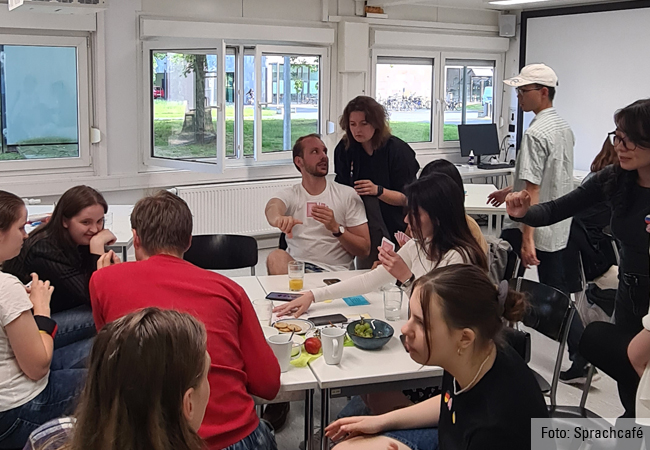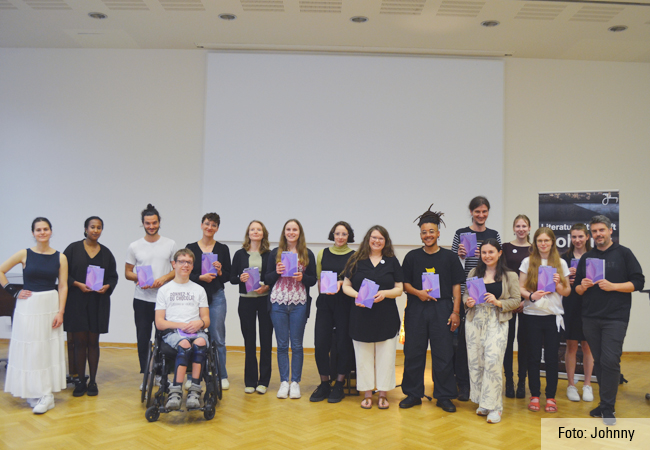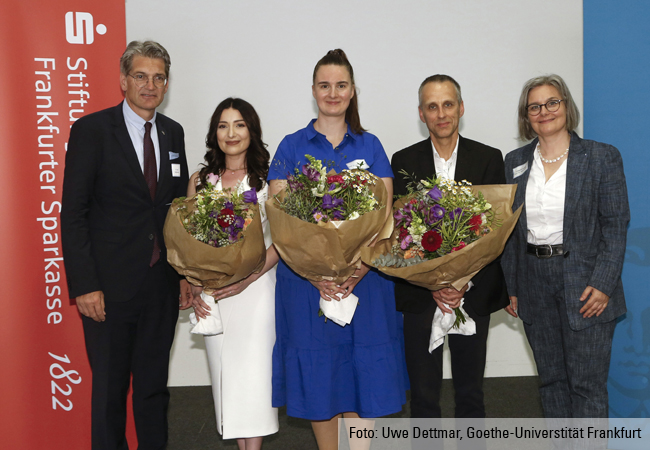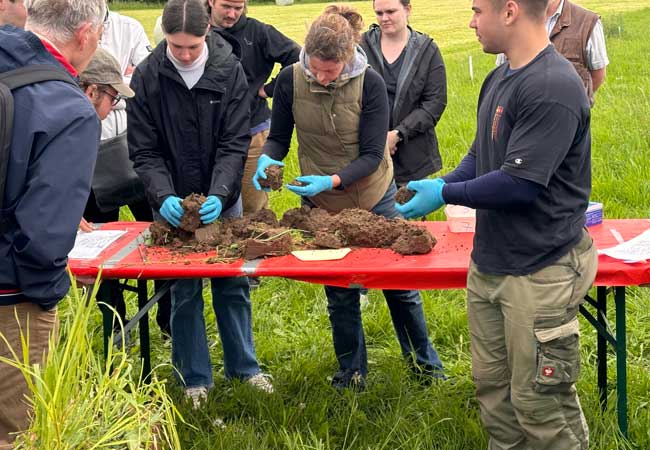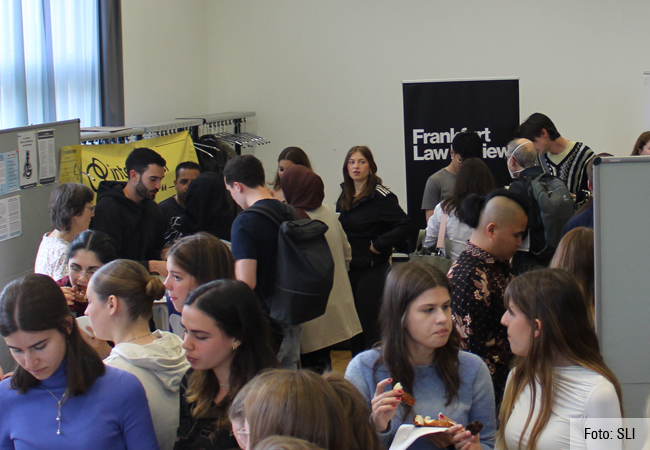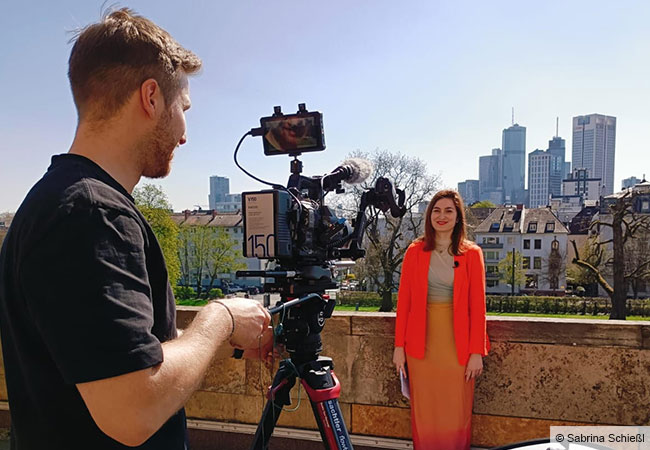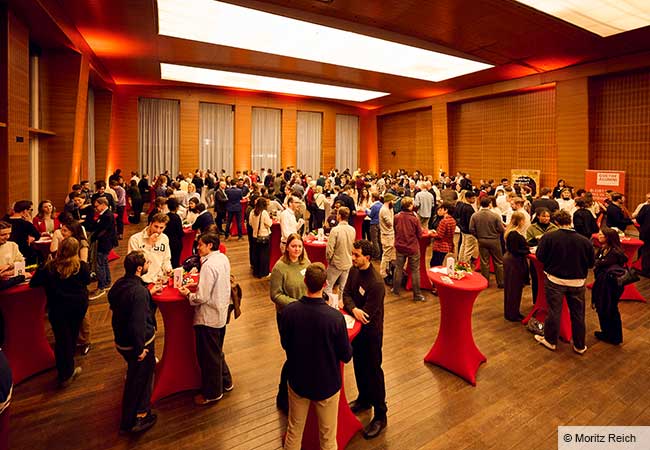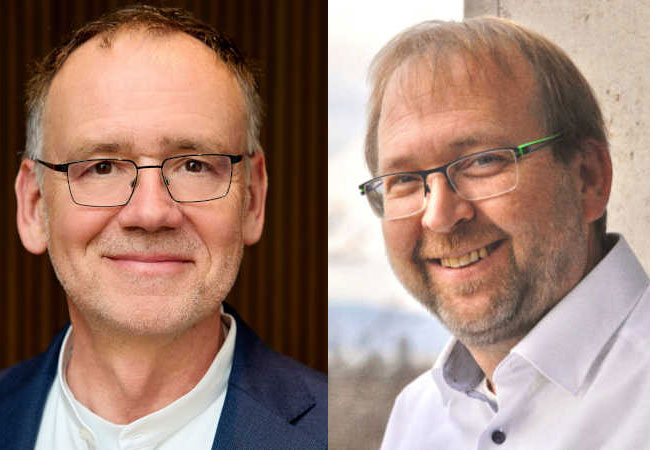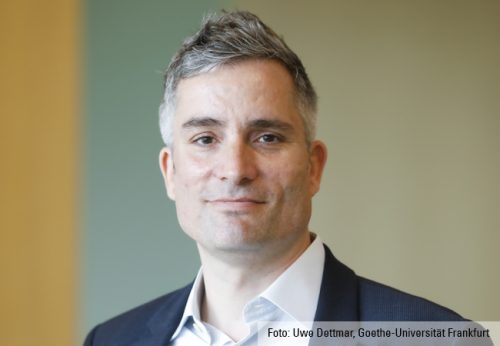
As a student, Tobias Singelnstein decided to switch from his original choice of subjects (history, politics and economics) and study law instead. “I wanted to find a new subject, so I started looking at law and found it interesting,” he recounts, adding, “I was particularly fascinated by criminal law.” It has since repeatedly become clear that the decision he made back then was the right one. The full significance of this biographical about-turn became apparent most recently in April 2022, when he took up his professorship in criminal law, criminal procedural law and criminology at Goethe University Frankfurt.
When this outstanding lawyer continues by saying, “I decided to specialize in ‘criminology’ at the end of my degree course precisely because it’s not so legal,” this is not academic dialectics – it reflects another aspect of his personality: Singelnstein believes it is important to look beyond one’s own horizons. “Even though criminology in Germany has traditionally been studied in the law faculties, it’s no legal subject but primarily a sociological one, with connections to fields like economics and psychology,” he points out. “In other countries, including the US and Britain, criminology is therefore often located within the social sciences.”
This means Singelnstein has to be well versed in two different methodologies. He needs to know not only the methods used in the normative subjects of criminal law and criminal procedural law, where he examines existing laws, but also those used in criminology, which encompasses aspects of social science. While criminology researchers do indeed sometimes undertake theoretical work, the subject is largely rooted in empiricism. “In criminology we use both qualitative and quantitative empirical procedures,” Singelnstein explains. “Our investigation methods go beyond combing dossiers, qualitative interviews and discussions in focus groups. We also use questionnaires to discover respondents’ attitudes to certain topics, to find out whether they’ve ever been the victim of certain crimes – or whether they’ve ever committed certain crimes themselves.”
Unlawful police violence
One prominent example combining quantitative and qualitative methods is a study known by the German acronym “KViAPol” (standing for “Bodily harm inflicted on the job by police officers”), which was completed a few months ago. Singelnstein and his working group investigated around 3,300 cases in which people said they had fallen victim to unlawful police violence. “Police officers sometimes have to use force when performing their duties,” Singelnstein states. “However, we also found that most people don’t file a complaint because they’re scared of the consequences or believe they won’t have a chance in criminal proceedings.”
The quantitative investigations were supplemented with qualitative interviews with public prosecutors, judges, advice centers and of course police officers. Singelnstein discovered that beyond poorly planned police assignments, which most often escalate, excessive police violence also can be encouraged by “critical questions” from demonstrators and activists, and by insults or refusals to cooperate. “The police’s worry about losing control during a deployment contributes to the escalation of sensitive situations,” he says in summary.
After working on excessive police violence for five years, Singelnstein is now probing how much racism and discrimination there is in dealings with the police. “Most of the studies we have were conducted in the 1990s and compiled the subjective attitudes of police officers,” he says and explains that, as important as this research is, criminological science must stop neglecting the experiences of the victims of racism and discrimination.
Complaints procedures in five nations
Singelnstein, however, has other interests alongside potential police misconduct. Together with a German-British-Franco-Canadian-Japanese team, he has researched and compared what the inhabitants of the respective countries can do about police behavior they regard as unacceptable. “We look at what structures exist for handling complaints and the mechanisms that are set in motion when complaints are lodged.”
What is more, Prof. Singelnstein finds it fascinating to pass knowledge on to others. “I couldn’t tell you what I like best,” he says with enthusiasm. “When students initially arrive at university, I love teaching them the basics of criminal law in the first one or two semesters.” But he is equally keen on teaching them his own specialties at the end of the degree program, i.e. criminal procedural law, juvenile criminal law and criminology. “It doesn’t matter whether I enter an auditorium full of freshmen or final exam candidates – the next 90 minutes will be strenuous and fulfilling in equal measure,” he says.
Autorin: Stefanie Hense


